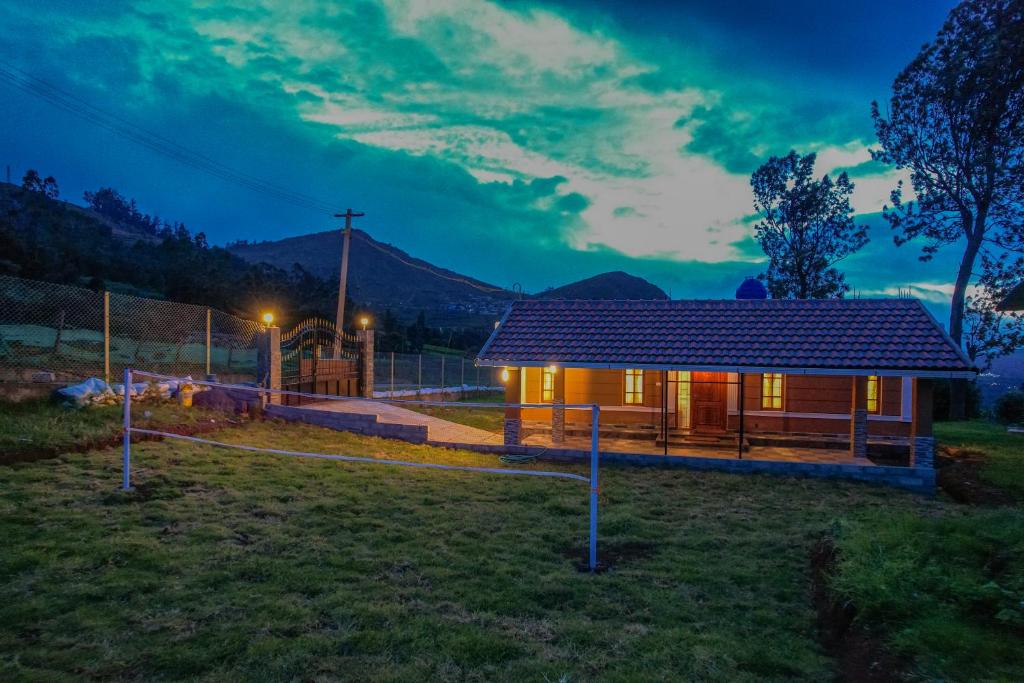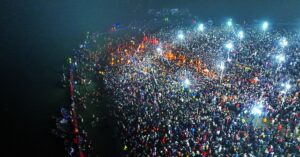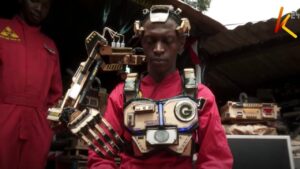 Pin
Pin Photo by anne sch
The curious thing about human nature is not that we contradict ourselves, but that we do so with such remarkable consistency. We worship in temples of fear rather than love, knowing full well that terror makes terrible architects of the soul. We befoul our forests while lecturing about conservation. We demand independence yet design our entire existence around dependence—on pills that suppress rather than heal, on governments that tax us into servitude, on education systems that teach us everything except how to think for ourselves. We are all standing in the gutter, perfectly aware of it, yet choosing to stay anyway.
This is not mere weakness. It is something far more interesting: a sophisticated art form. We are creatures who understand the architecture of our own prisons so thoroughly that we’ve decorated them with mirrors. We tell ourselves we cannot afford the farm, the family time, the self-sufficiency—yet we afford the very systems that keep us from these things. The medicine cabinet overflows while prevention withers. The government grows fat on our compliance while genuine independence starves. And there we stand, perfectly aware of the joke, perfectly content to be its punchline.
Table of Contents
Love Never Got a Seat
Consider how we’ve constructed our belief systems. We don’t pray to God out of love; we pray out of fear. Fear of punishment, fear of judgment, fear of emptiness. The same pattern repeats everywhere—in governments that rule through anxiety, in workplaces that keep us compliant through precarity, in education systems that motivate through grades and shame rather than genuine curiosity. Fear is the master puppeteer, and we’ve become so accustomed to the strings that we mistake them for our own limbs. We’ve built entire civilizations on the premise that humans only behave when threatened. And the darkest joke? We’re right. But not because it’s human nature to respond only to fear—it’s because we’ve trained ourselves so thoroughly to respond to nothing else that we’ve forgotten there were ever other options.
Love-based systems are terrifying because they require something harder than obedience: they require trust, vulnerability, and the radical assumption that humans are capable of choosing goodness when goodness isn’t enforced. So we avoid them. We stick with what we know works—the carrot and the stick, the reward and the punishment, the promise of heaven and the threat of hell. We’ve made fear so comfortable, so familiar, that we call it responsibility. We call it order. We call it civilization. Meanwhile, the systems built on fear quietly drain us, making us smaller, more dependent, more willing to accept the next compromise. And we know this. We understand it perfectly. Yet we build more temples to fear every single day, telling ourselves it’s the only language the world understands.
The Medicine Cabinet Overflows, Prevention Starves
We’ve become masterful at treating symptoms while ignoring their roots. A person develops diabetes, and we hand them insulin. Brilliant medicine, genuinely life-saving. But we never ask why their body rebelled in the first place—the processed food, the sedentary life, the chronic stress. We suppress the disease instead of dissolving the conditions that created it. Cancer arrives, and we wage chemical warfare against it with precision and hope. Again, sometimes this works. But we rarely ask why the body turned against itself. Was it the environment? The stress? The food system designed to maximize profit over nutrition? We treat the symptom because treating the symptom is profitable, predictable, and puts the responsibility squarely on medicine rather than on us. Prevention requires something far more difficult: it requires changing how we live.
This pattern extends everywhere once you start noticing it. Education teaches us subjects designed to make us valuable to employers rather than subjects designed to make us independent and self-sufficient. We learn accounting but not agriculture. We study business management but not how to grow food or build community or think critically about the systems we inhabit. Then we graduate, dependent and specialized, perfect employees but terrible at self-reliance. Governments tax us into debt while we tell ourselves we’re building infrastructure and security. We buy products to solve problems created by other products. We take pills for side effects caused by other pills. The entire machinery is designed not to solve problems but to manage them perpetually, keeping us in a state of controlled helplessness. And we participate willingly because the alternative—genuine change—feels impossible. So we reach for the quick fix, knowing it won’t work, hoping it will anyway.
Self-Sufficiency Feels Like a Luxury We Can't Afford
Here’s the trap, beautifully constructed: self-sufficiency has been rebranded as a privilege of the wealthy. Growing your own food sounds romantic until you realize you’re supposed to work full-time for someone else while also maintaining a farm. Building genuine family connection sounds lovely until the economic system demands both parents work to afford housing. Creating real independence through education and skill-building feels like a dream when you’re exhausted from earning money just to survive. So we outsource everything—our food, our childcare, our security, our thinking. We tell ourselves it’s efficient. We tell ourselves it’s modern. What we don’t admit is that it’s convenient for the systems that profit from our dependence. The government doesn’t want self-sufficient farmers; it wants taxpayers. Corporations don’t want educated independent thinkers; they want consumers. Educational institutions don’t want to teach you to think for yourself; they want to produce employees for the machine.
The cruelest part is that we know this. We fantasize about leaving the city, growing vegetables, raising children without screens, building lives around genuine connection instead of productivity metrics. We scroll through images of homesteads and community gardens while sitting in traffic on the way to jobs we tolerate. We understand perfectly that the life we’re living is a trade—comfort and convenience purchased with our time, our health, our relationships. Yet we make the trade anyway, every single morning. We tell ourselves we’ll do it differently someday, knowing someday never comes. Self-sufficiency isn’t actually impossible; it’s just incompatible with the systems we’ve agreed to live within. And we’ve agreed so thoroughly that we’ve forgotten we were ever given a choice.
The Government That Taxes Us Into Debt (While Calling It Progress)
Observe the elegant inversion: governments present themselves as our protectors and providers, yet they operate primarily through extraction. They tax our income, our purchases, our property, our inheritance. Then they borrow against our future, creating debt that binds generations yet unborn. We call this civilization-building. Infrastructure, they say. Security, they promise. Social programs, they assure us. But the math never quite works out, does it? The roads crumble. The schools lack resources. The healthcare system staggers under its own weight. Yet the taxes never decrease. The debt never shrinks. The government keeps growing, and we keep funding it, half-aware that we’re financing a system that doesn’t actually solve the problems it promises to solve. We pay for wars we didn’t vote for, surveillance we didn’t consent to, bureaucratic bloat we didn’t create. The trap is that refusing to pay means losing your home, your freedom, your security. So we pay. We grumble. We vote for different representatives who make the same promises. Nothing changes except the debt gets larger.
What makes this peculiarly human is our willingness to participate in our own subjugation while pretending we have no choice. We understand that wealth extracted as taxes could instead build our own security—a farm, savings, community networks, genuine independence. Instead, we hand it to an abstract entity called government and hope it will take care of us. Sometimes it does, slightly. Often it doesn’t. But we keep doing it because the alternative—organizing genuine self-sufficiency—feels impossible when you’re already exhausted from working to pay taxes. The system is designed this way intentionally. Not as conspiracy, but as the natural evolution of a structure that benefits from our compliance. We’re not victims of the government; we’re participants in our own captivity, and we know it perfectly well.
Education for Corporations, Not for Ourselves
The education system presents itself as a ladder to success, but it’s actually a filter designed to sort humans into categories of usefulness. We teach children to memorize rather than think, to obey rather than question, to specialize rather than understand. A brilliant mind gets channeled into accounting for a company or marketing for a brand, not into understanding themselves, their community, or how to live well. We learn the skills that make us valuable to employers while remaining profoundly ignorant about the skills that make us valuable to ourselves. How to grow food? Not taught. How to build a home? Not taught. How to think critically about the systems we live within? Definitely not taught. How to maintain genuine relationships and community? There’s no curriculum for that. Instead, we learn to compete, to accumulate credentials, to make ourselves marketable. Then we graduate, debt-laden and specialized, perfectly positioned to feed the machine for the next forty years.
The cruelest aspect is that this system masquerades as liberation. Parents sacrifice for their children’s education believing they’re purchasing freedom. Students accumulate debt believing they’re investing in themselves. But what they’re actually purchasing is a ticket to usefulness within existing structures, not independence from them. True education would teach us to question authority, to build alternatives, to understand food systems and governance and psychology and ecology—knowledge that would make us genuinely free. Instead, we get trained. Like dogs, but with better marketing. We know this too. We watch our children get sorted into categories based on standardized tests. We feel the hollowness of credentials that mean nothing except “I can follow instructions.” Yet we perpetuate it because the system offers no alternative path that doesn’t require enormous courage. So we keep pushing our children through the same machinery, hoping somehow it will produce different results.
The First Step—Seeing the Cage (Because You Can't Escape What You Can't See)
The solution begins not with action but with recognition. Most people live their entire lives inside these systems without ever truly seeing them. They experience the symptoms—exhaustion, disconnection, the sense that life is happening to them rather than through them—but they never trace these feelings back to their source. The first genuine step toward change is to stop pretending the contradictions don’t exist. Stop telling yourself that fear-based systems are necessary. Stop accepting that medicine cabinets must overflow while prevention starves. Stop believing that self-sufficiency is impossible when you’re simply choosing convenience instead. This isn’t about guilt or shame. It’s about clarity. You cannot solve a problem you refuse to acknowledge. So the work begins in your own mind: ruthlessly, honestly examining where you’ve accepted compromise as inevitability.
Start small. Notice one area where you know better but do worse. Maybe it’s your relationship with food—you know processed ingredients harm you, yet you buy them anyway because they’re convenient. Maybe it’s your relationship with work—you know your job doesn’t align with your values, yet you show up every day because the paycheck arrives. Maybe it’s your relationship with family—you know constant connection matters, yet screens mediate most of your interactions. Don’t try to fix everything at once. Just pick one contradiction and sit with it. Ask yourself honestly: what would it cost me to change this? Not money necessarily, but comfort, certainty, belonging, status. What would I gain? Real autonomy, genuine health, authentic connection. Once you understand the actual trade-off—not the fantasy version, but the real one—you can make an informed choice. Most people never get this far. They prefer living in denial to living with the consequences of their choices. But you’re already seeing the cage. That’s the hardest part.
Build Your Own System (Even If It's Imperfect)
Once you see the cage, the next step is to start building an alternative—not someday, but now, within the constraints you actually have. This doesn’t mean abandoning society or moving to a mountain to live off-grid. It means strategically reclaiming autonomy in the areas where it matters most to you. If food sovereignty calls to you, start small: grow tomatoes in a pot, learn to preserve them, begin understanding where your calories come from. If family connection matters, ruthlessly protect time for it—no screens, no distractions, just presence. If independence through education drives you, read voraciously about topics that fascinate you rather than waiting for an institution to validate your learning. These aren’t grand gestures. They’re micro-rebellions against the systems that profit from your dependence.
The beautiful thing about building your own system is that it doesn’t require permission. You don’t need the government’s approval to grow food. You don’t need a corporation’s permission to learn something real. You don’t need a degree to think critically or build community. What you need is time, intention, and the willingness to be slightly uncomfortable while you figure things out. Start where you are with what you have. Maybe you can’t leave your job tomorrow, but you can spend three hours a week learning agricultural principles. Maybe you can’t abandon the healthcare system, but you can start preventing disease through better food and movement. Maybe you can’t homeschool your children, but you can supplement their education with real knowledge—how economies actually work, how to fix things, how to think. Each small act of self-sufficiency weakens your dependence on systems designed to keep you compliant. And as you reclaim autonomy in one area, you naturally become braver about reclaiming it in others. The cage loosens incrementally, not dramatically.
The Rebels Who Saw the Cage (And Tried to Build Differently)
History is littered with people who recognized these contradictions and attempted to live differently. Thomas Jefferson wrote eloquently about self-sufficiency and agrarian independence, yet enslaved people to maintain his estate—a perfect encapsulation of knowing better while doing worse. Henry David Thoreau retreated to Walden Pond to demonstrate that a human could live simply and independently, spending years in deliberate self-sufficiency. His experiment worked brilliantly as a proof of concept, yet most of us never attempt it because the experiment itself revealed something uncomfortable: genuine independence requires sacrifice. We’d rather have convenience. Mahatma Gandhi built a movement around self-sufficiency through spinning cloth and village autonomy, understanding that political independence meant nothing without economic independence from colonial systems. He was assassinated for threatening the very systems that profit from dependence.
More recently, we see this pattern in people like Wangari Maathai, who recognized that environmental destruction stemmed from systems designed to extract rather than regenerate, and began planting trees as an act of rebellion against those systems. Or consider permaculture pioneers like Bill Mollison, who spent decades developing systems to make land genuinely productive and self-sustaining, proving that abundance doesn’t require industrial agriculture. The common thread in all these lives is that they recognized the contradiction and acted anyway, knowing their individual efforts couldn’t dismantle the larger systems but believing that demonstrating alternatives mattered. What’s striking is that none of them preached perfection. They didn’t claim to have escaped the cage entirely. They simply reclaimed what autonomy they could and showed others it was possible. Their lives suggest something crucial: you don’t need to wait for systemic change to begin living differently. You begin now, imperfectly, knowing your garden won’t feed the whole world but trusting that it feeds your family and teaches your children something real about where food comes from.
The Community Alternative (Strength Isn't Individual, It's Collective)
The mistake most people make when recognizing these systems is thinking the solution lies in individual heroics—the lone farmer, the self-taught genius, the person who escapes and builds something separate. But this misses something fundamental about human nature: we are not solitary creatures. We survive and thrive through networks. The real antidote to systemic dependence isn’t individual self-sufficiency; it’s interdependence built on genuine reciprocity rather than corporate or governmental mediation. When a village collectively grows food, shares tools, raises children together, and makes decisions democratically, they become genuinely independent from external systems. Not because each person is self-sufficient, but because the community itself becomes self-sustaining. This is why governments and corporations actively work to dissolve community bonds. Isolated individuals are far easier to control than connected communities.
Start where you are. Build genuine relationships with your neighbors. Know who they are beyond polite waves. Begin small exchanges—you fix their fence, they teach your children to bake. You share your garden’s abundance, they share their skills. These aren’t transactions; they’re the foundation of a different kind of economy, one based on mutual aid rather than currency. Create spaces for people to gather without consumption as the purpose. A neighborhood book club, a skill-sharing workshop, a collective garden. As these bonds strengthen, something shifts. Suddenly, when crisis comes, you have people to turn to instead of institutions. When you need knowledge, you have teachers in your community instead of expensive courses. When you need support, you have actual humans who know and care about you. This doesn’t require perfection or ideological purity. It simply requires the recognition that we’re stronger together than apart, and that the systems telling us we’re isolated and powerless benefit enormously from our believing that lie.
The Beautiful, Messy Truth—You Don't Need Permission to Begin
Here’s what separates the people who change from the people who don’t: the people who change stop waiting for the perfect moment, the complete plan, or the guarantee of success. They understand that human nature includes both our capacity for contradiction and our capacity for choice. Yes, we’re creatures of habit and fear. Yes, systems are designed to keep us compliant. Yes, breaking free is uncomfortable and uncertain. But we’re also capable of something remarkable: we can see our own cages and choose, deliberately and imperfectly, to step out of them. This isn’t about achieving some utopian state of complete independence. It’s about reclaiming agency in the areas that matter most to you—whether that’s your food, your relationships, your learning, or your community. The systems won’t collapse because you start a garden or teach your neighbor to bake bread. But something inside you will shift. You’ll taste genuine tomatoes you grew yourself and understand, in your body, that alternatives exist. You’ll sit with people who know and care about you and feel what real community tastes like. You’ll learn something because it fascinated you, not because it was on a test, and remember what curiosity feels like.
This is how change actually happens—not through grand revolution but through millions of people making different choices in their own lives, showing their children different possibilities, inviting their neighbors into different arrangements. The contradiction between what we know and what we do doesn’t disappear. You might still pay taxes you resent. You might still use systems you don’t believe in. But you’ll do it consciously, strategically, while simultaneously building alternatives. This is the honest version of liberation: not perfection, but intention. Not escape, but reclamation. The cage remains, but you’re no longer pretending it’s invisible. And once you see it clearly, you’re already halfway free.
FAQs
Not entirely—but you can reclaim autonomy where it matters. Start small: grow food, build community, learn for yourself. Every act of self-sufficiency weakens systemic dependence. Perfection isn’t the goal; intentional living is.
Your garden won’t feed the world, but it feeds your family and teaches your children the truth. Systemic change begins when millions make different choices. You’re not saving the system; you’re building an alternative within it.
Start where you feel the contradiction most acutely. What makes you angriest? Most exhausted? Most disconnected? That’s your entry point. Change one thing deeply rather than everything shallowly.
Start with one person—a neighbor, a friend, a family member. Real movements begin microscopically. Share your garden’s tomatoes. Invite someone to learn something with you. Reciprocity spreads quietly.
You don’t need to choose. You can work your job while gardening. Participate in education while self-teaching. The goal isn’t purity; it’s strategic reclamation of autonomy. Do both. Be honest about the trade-offs. That’s the real rebellion.






























